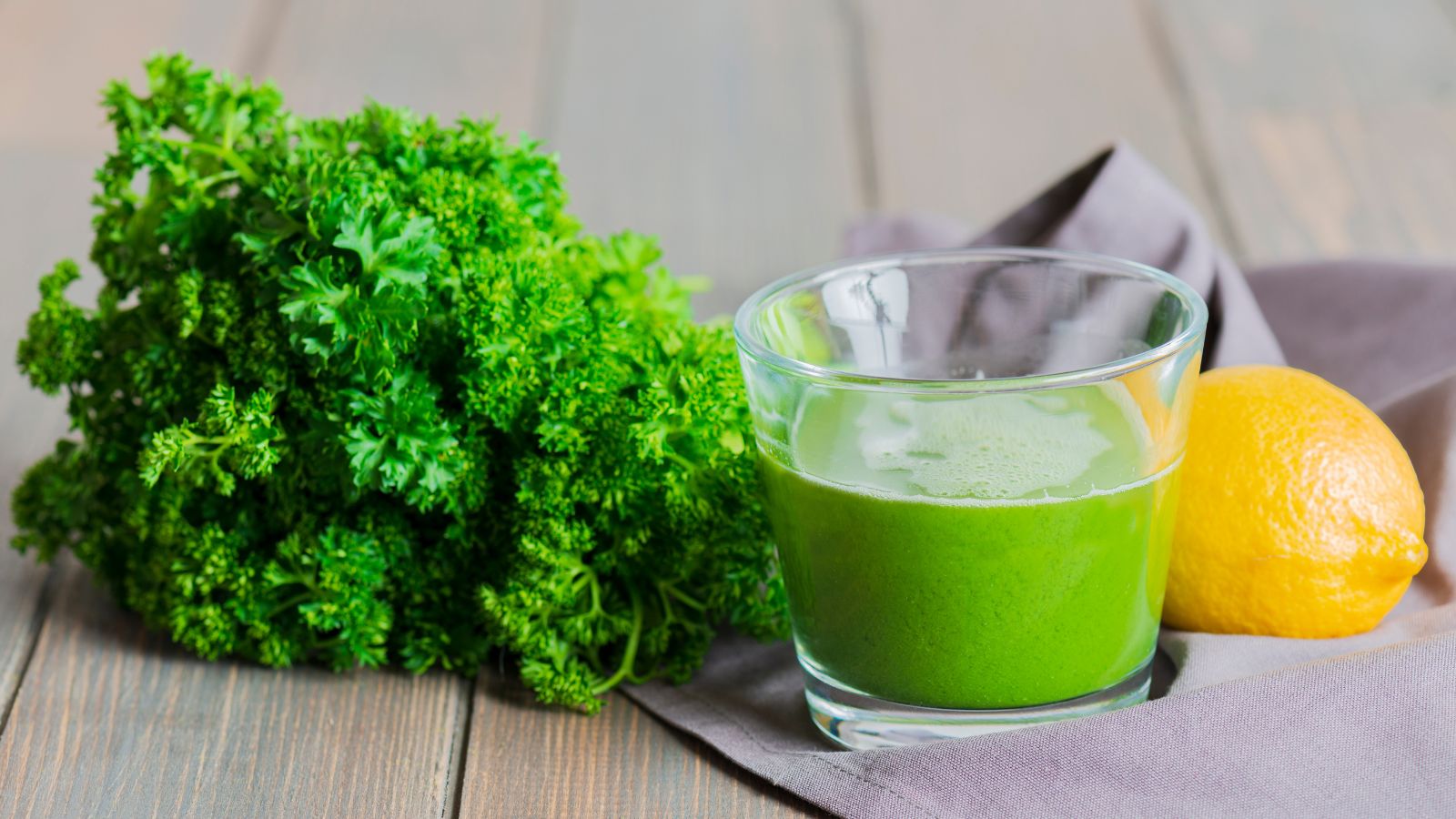
Can Rabbits Eat Parsley? Safe Amounts, Benefits, and Risks
Photo Credit: Canva Pro
Can rabbits eat parsley? Yes, but only in small amounts. Parsley is a good plant that is full of fiber and vitamins that helps the body and digestion. Don't make it the main meal; add it to a mix of fresh veggies. A rabbit should only eat parsley as a treat and timothy hay every day.
It's not always good to have too much. How to give your rabbit parsley without harm is explained in this article.
Can Bunnies Eat Fresh Parsley?
Photo Credit: Canva Pro
Nutritional Benefits of Fresh Parsley
Parsley is healthy, a highly nutritious option when used in balance with other leafy greens. This herb is packed with essential vitamins and minerals, making it a great addition to your rabbit’s diet.
Similar to dandelion greens, mustard greens, and beet greens, bunnies can benefit from parsley as long as they are given the right amount.
-
Vitamins A, C, and K: Support immune health, vision, and proper blood clotting.
-
Calcium and iron: Strengthen bones and blood; must be balanced to avoid urinary issues.
-
Antioxidants: Help fight inflammation and contribute to long-term organ function.
-
Fiber: Improves digestion, complementing diets based on grass hay or timothy hay.
Frequency and Portion Guidelines
Even though parsley is very healthy, rabbits should only eat a small amount because it contains oxalic acid. Feeding lots of high-oxalate foods can cause health issues like kidney problems or bladder sludge. Because of this, parsley should be a treat rather than a staple.
-
Serving size: Offer just a few sprigs at a time.
-
Feeding frequency: 2–3 times a week is safe for most rabbits.
-
Pair with: Greens like swiss chard, spring mix, green leaf, and collard greens.
-
Young rabbits: Introduce only after 12 weeks of age in very small quantities.
-
Feeding method: Always serve in a small bowl along with grass hay and timothy hay.
What are the Best Herbs for Rabbits?
Photo Credit: Canva Pro
Top Safe and Nutritious Herbs
Herbs can add flavor, variety, and some nutritional benefits to a rabbit’s diet. Certain herbs may support digestion and contribute to general wellness when fed properly.
-
Basil: Full of antioxidants and provides anti-inflammatory benefits.
-
Cilantro: Supports digestion and may help reduce stress in anxious buns.
-
Mint: Aids digestion and relieves mild bloating.
-
Oregano: Boosts immune function with antimicrobial properties.
-
Chamomile: Known for its calming and stomach-soothing effects.
-
Rosemary: A strong herb that helps with circulation and joint inflammation.
-
Dandelion greens: Rich in fiber and vitamins, helps urinary function and gut movement.
How to Introduce Herbs Safely
Rabbits have delicate digestive systems. If you give them too many new food too soon, they might get diarrhea or refuse to eat. When you add new plants to your rabbit's weekly food schedule, you need to be patient and monitor it.
-
Start small: Use only a small amount of any new herb.
-
Wait and monitor: If stools are soft or watery, remove the herb and wait a few weeks.
-
Rotate options: Avoid offering the same greens or herbs every day.
-
Pair herbs with hay: Ensure buns continue to eat mostly hay like timothy or grass hay.
-
Use dried herbs sparingly: These are useful in winter but can be more concentrated.
-
Always provide fresh water: Clean water is crucial during dietary changes.
Can Pets Eat Parsley?
Photo Credit: Canva Pro
Health Benefits Across Common Pets
Not only does parsley help rabbits, but it can also help other small animals and even some cats and dogs if used appropriately. It is thought to be a super-herb for many dogs because it is full of vitamins and minerals.
-
Dogs: Improves breath, supports liver function, and boosts the immune system.
-
Guinea pigs: Offers vitamin C and fits well into a rotation with green leaf lettuce and spring mix.
-
Cats: Generally safe in limited quantities, but not necessary in their diet.
Safety Considerations by Species
Parsley is generally thought to be safe, but it can be harmful if fed incorrectly or in large amounts. A different kind of parsley called spring parsley is toxic even in small amounts and should never be fed.
-
Spring parsley: Toxic to rabbits and should never be offered under any circumstances.
-
Kidney health: Parsley has diuretic effects; avoid if your pet has kidney issues.
-
High calcium concerns: Feeding too many calcium-rich foods can lead to urinary problems.
-
Moderation always: Parsley should never make up the majority of greens.
-
Mix with other vegetables: Ensure variety with foods like carrot tops, celery, and kale.
How Much Parsley is Too Much?
Photo Credit: Canva Pro
Signs of Overfeeding Parsley
Abundant amounts of oxalates or calcium are bad for rabbits, and giving them too much parsley can make them sick, especially young rabbits or rabbits that tend to get urinary sludge.
-
Urinary sludge: Chalky or gritty urine may indicate too much calcium.
-
Kidney discomfort: Hunched posture or frequent urination can signal trouble.
-
Appetite loss: A rabbit that stops eating or drinking may be experiencing digestive stress.
-
Soft stools: Loose or wet droppings suggest dietary imbalance.
-
Less hay intake: Too many greens might reduce hay consumption, which is the worst thing for their gut.
If any of these signs appear, cut back on the greens and give them hay and fresh water daily. In a few weeks, you can add greens like parsley back in, but in smaller amounts. You can also add safer greens like green leaf lettuce or collard greens.
What is Parsley Good For?
Photo Credit: Canva Pro
Internal Health Benefits
Parsley does more than just add variety to your rabbit’s food bowl. It can serve as a functional herb supporting various systems. Rabbits that eat a steady diet of hay and leafy green vegetables can benefit from adding parsley in small amounts.
-
Digestive aid: High fiber content helps prevent gut slowdown and GI stasis.
-
Urinary tract support: Mild diuretic properties can assist with urine flow, when properly hydrated.
-
Anti-inflammatory: Contains compounds that reduce inflammation in joints and internal organs.
-
Nutrient density: Loaded with vitamins A, C, and K as well as iron, magnesium, and folate.
-
Enrichment value: The flavor and texture add stimulation and variety to meals.
When to Avoid Parsley in Rabbits
Due to its calcium and diuretic affects, rabbits that are pregnant or nursing, rabbits that have kidney problems, or rabbits that are still healing from surgery may not be able to handle parsley well.
-
Pregnant females: High calcium, diuretic—avoid if pregnant.
-
Kidney issues: High calcium may worsen kidney strain.
-
Post-surgery recovery: Stick to hay and soft greens like romaine or green leaf lettuce.
-
Sensitive systems: If your bun reacts poorly to new foods, skip parsley or use in very limited quantities.
-
Daily repetition: Never feed parsley every day; rotation is essential..
FullyHealthy: Our Favorite Organic Rabbit Herbs
What Makes FullyHealthy a Trusted Source for Pet-Safe Products
FullyHealthy isn't just a store, it's a carefully chosen selection of items that are good for you and meet strict standards. This includes a variety of herbs and spices that are good for humans as well as pets.
-
Health-conscious marketplace: Offers Paleo, AIP-compliant, and clean ingredient products.
-
Certified and ethical brands: Includes Simply Organic and other reputable names.
-
Diverse herb selection: Carries thyme, rosemary, bay leaves, and other bunny-safe herbs.
-
Clear labeling: Low-FODMAP, coconut-free, and organic tags help with dietary choices.
-
User-friendly site: Search, subscribe, and shop easily with clear dietary filters.
Simply Organic Parsley Flakes Overview
Although fresh parsley is best, dried parsley can be useful, especially in colder seasons . Simply Organic Parsley Flakes are a great product that doesn't have any fillers or preservatives.
-
Additive-free: Only one ingredient—organic parsley.
-
Certified organic: Grown and processed without harmful chemicals.
-
Mild flavor: Perfect for picky buns and gentle on the digestive system.
-
Easy use: Sprinkle over timothy hay or mix into greens like spinach or celery.
-
Safe for storage: Keeps well and lasts longer than fresh herbs.
Final Thoughts
Rabbits can eat parsley but only in moderation with other fresh greens. Serving timothy hay with fresh veggies like spring mix and parsley changes up its nutritional value. Choices that are low in nutrients, like iceberg cabbage, should be avoided. Keeping a healthy routine of hay, clean water, and leafy greens is important for young adults.
A rabbit's health rests on how often it is fed. Always choose safe herbs because your rabbit’s body weight and well-being starts with what they eat.
FAQS
Can rabbits eat iceberg lettuce with spring mix?
No, iceberg lettuce should not be fed but spring mix can be rotated with fresh greens and timothy hay, or even alfalfa hay or romaine lettuce for younger rabbits.
Should young adults eat timothy hay and fresh vegetables?
Yes, young adults must eat mostly timothy hay with small portions of fresh vegetables like spring mix. Alfalfa pellets or alfalfa hay may be used for younger rabbits under 12 weeks due to their higher protein and calcium content,
Can I mix iceberg lettuce with fresh greens?
No, iceberg lettuce gives no nutrition and should not be mixed with fresh greens in the rabbit’s daily diet.
Is timothy hay better than spring mix?
Yes, timothy hay is the main food and spring mix is only a small part of daily fresh greens.
What is better for young adults: iceberg lettuce or timothy hay?
Timothy hay is better for young adults, and iceberg lettuce should not be part of their fresh vegetables.

Leave a comment